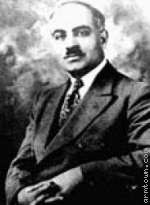Turkey is fiercely patriotic and proud of it. But the country's bid to join the European Union has sparked a nationalist backlash that has turned murderous, the BBC's Sarah Rainsford reports from Istanbul.
Writer Hrant Dink was the first victim, killed last year because some in Turkey could not tolerate what he stood for. To nationalists, he was a traitor.
In a country where every citizen is defined as a Turk, Hrant Dink defined himself as ethnic Armenian. That was already subversive to some. But Mr Dink went further.
He wrote about the expulsion and killing of hundreds of thousands of Ottoman Armenians from eastern Turkey in 1915. To Armenians, and others, that was genocide - a claim Ankara vigorously denies.
Hrant's cause
Hrant Dink was convicted of insulting the Turkish nation. That is a crime here. Nationalist protesters surrounded his office shouting "Love Turkey or leave it!" and he received hundreds of death threats.
Already low-profile, after Mr Dink's murder most Armenians retreated into scared silence. But almost two years on, his widow has decided to speak out.
"Hrant was really affected by those protests," Rakel says, fighting back tears. "After that, we said only a miracle could help us live here."
But the family stayed.
"Hrant could never abandon his cause," says Rakel, explaining that he wanted to convince Turkey that diversity and dissent were a strength, not a threat.
His killers disagreed.
"I don't know if I should say this, but the origins of this murder go back to 1915," Rakel says.
"An Armenian told the truth to the face of the Turkish state and the law. That's why Hrant was murdered. It offended them, it dishonoured them."
Critical flashpoints
To Turks, honour is everything. From childhood they learn of a glorious history: how a soldier - Mustafa Kemal Ataturk - forged a new nation from the ruins of the Ottoman Empire.
To most, the allegation their ancestors were guilty of genocide is an unacceptable slur.
Turkey's justice minister underlined that view himself this week, defending his decision to allow the trial of another writer to proceed for referring to "genocide".
"The man describes Turkey as a murderer state," Mehmet Ali Sahin is quoted as saying.
It seems freedom of expression is no defence.
"That is why they were against Hrant," Rakel says. "They could not digest what he was writing about, even though he used very soft language."
But Turkey's drive to enter the EU has made nationalists feel threatened, and that has made them aggressive.
The Armenian issue, and the treatment of millions of Kurds in Turkey, have become critical flashpoints.
'Once-and-for-all fight'
Almost 50 writers have been brought to trial since May for insulting the nation.
"Democracy means questioning, it means self-critique - and this is the thing they [nationalists] would not like," explains Umut Ozkirimli, from Istanbul's Bilgi University.
"For them, when you start questioning things you become a traitor."
That is why Hrant Dink was murdered.
It is also why at least 20 writers in Istanbul are now living with bodyguards.
Oral Calislar is one of them. A close friend of Hrant Dink, he is also a well-known critic of the Turkish military - particularly its policy towards ethnic Kurds.
He has had dozens of death threats. Now, wherever he goes his armed guard goes with him.
"We want to change this country into a democratic country and the EU accession process is important for that," the journalist says.
"I think because of that, some powers in the state want to shut our mouths."
Mr Calislar is sure Mr Dink's murder is part of a far broader resistance to reform. He sees that deep within institutions of the Turkish state; groups clinging to power - and to their own vision of the republic.
"This is a once-and-for-all fight. It's been going on in the closet for 80 years, between those who want change and those who don't," Mr Ozkirimli agrees.
"If the whole project of EU membership goes away, [then] the democratic forces will lose, and forever," he adds.
'Ergenekon' trial
In that battle for democracy, Hrant Dink was on the frontline. Now there is another sign the fight will be fierce.
Eighty ultra-nationalists are currently on trial just outside Istanbul, accused of plotting to overthrow the government and block democratic reforms.
The prosecutor claims the group - known as Ergenekon - planned a campaign of murder and violence. It was meant to create chaos - and force the military to step in and take control.
Hrant Dink believed Turkey could change. His vision was of a truly democratic republic and the EU accession process was a vital part of that.
To his widow, such change now looks a long way off.
"[Turkey] doesn't want people to express their ethnic identity, or live freely. That doesn't fit the founding ideas of this country,” Rakel says.
"Turkey needs time to adjust. The EU process may help, but my husband's death is their biggest loss."
Watch the video
http://news.bbc.co.uk/2/hi/europe/7737413.stm
Monday, December 1, 2008
Subscribe to:
Post Comments (Atom)

No comments:
Post a Comment